After Hurricane Helene tore through the southeastern U.S., the small village of Chimney Rock in North Carolina was left devastated. This scenic town, known for its beautiful mountain views and tourism, was hit hard by flooding when the Broad River overflowed, dumping more than 20 inches of rain. The flooding destroyed homes, businesses, and roads, leaving residents with the daunting task of rebuilding their lives.
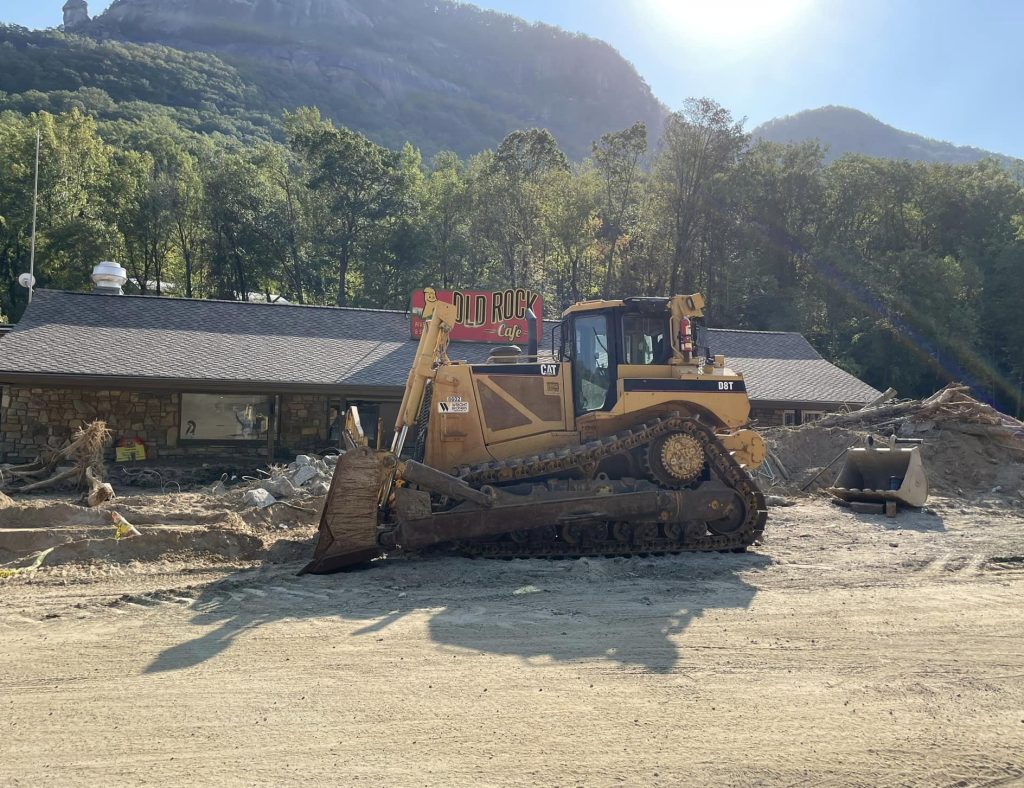
The recovery process has been slowed down, not just by the damage, but by false rumors spreading on social media. These rumors falsely claim that the federal government is planning to seize and bulldoze Chimney Rock to make way for a lithium mine nearby. Despite local officials repeatedly stating that these rumors are untrue, many people in the area believe them.

The false claims have led to dangerous situations. Armed militia members, believing they need to protect the town from the government, have been reported patrolling the streets, reportedly going so far as saying they are “hunting FEMA” workers. In response, the Federal Emergency Management Agency (FEMA), which is in charge of helping with disaster recovery, had to make changes to how it operates in the area.
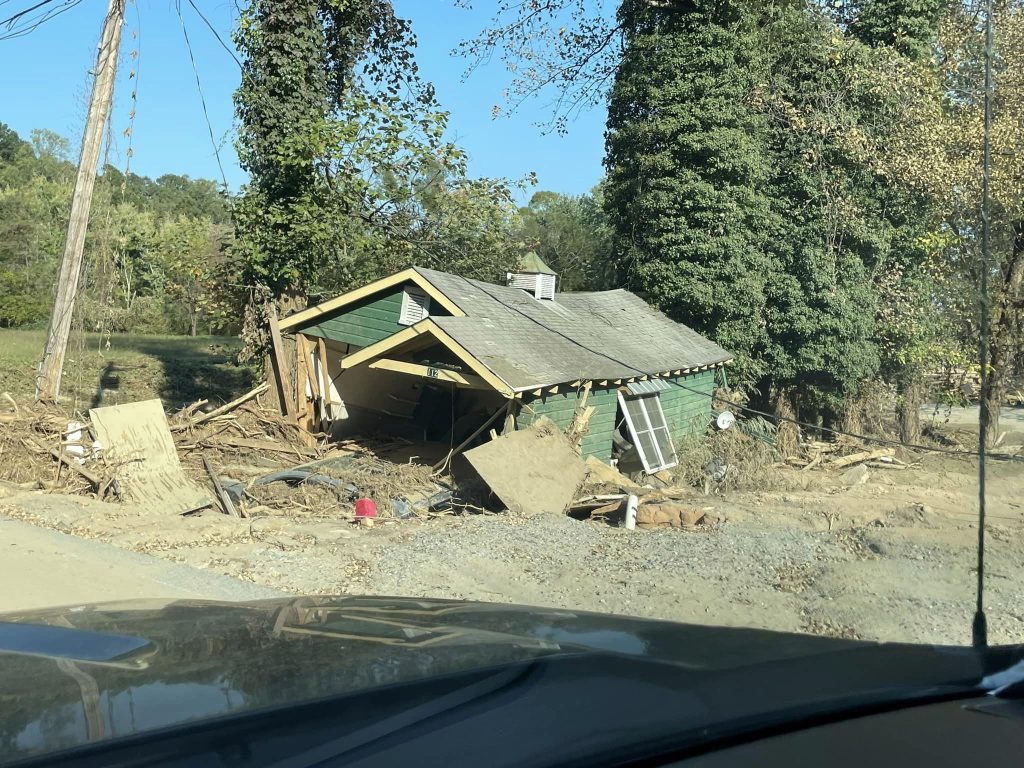
The national guard has reported no incident of this even though multiple news outlets have reported that the warning was issued by the forestry service that stated the national guard had reported the militia activity.
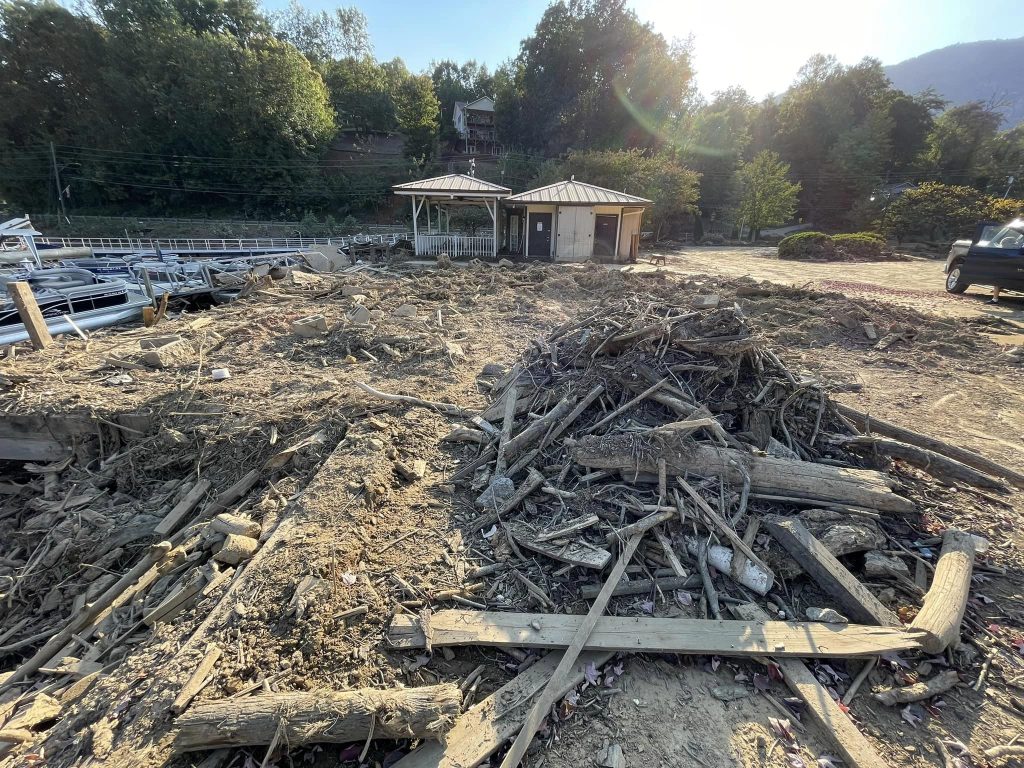
On Saturday, FEMA sent out an order for its workers to leave Rutherford County, where Chimney Rock is located, due to safety concerns. According to an email from the U.S. Forest Service, which is helping with recovery efforts, FEMA workers were told to stop going door-to-door to offer help because of threats from armed groups. Instead, they are now stationed at secure locations, which means people in the hardest-hit areas might not get the help they need as quickly.
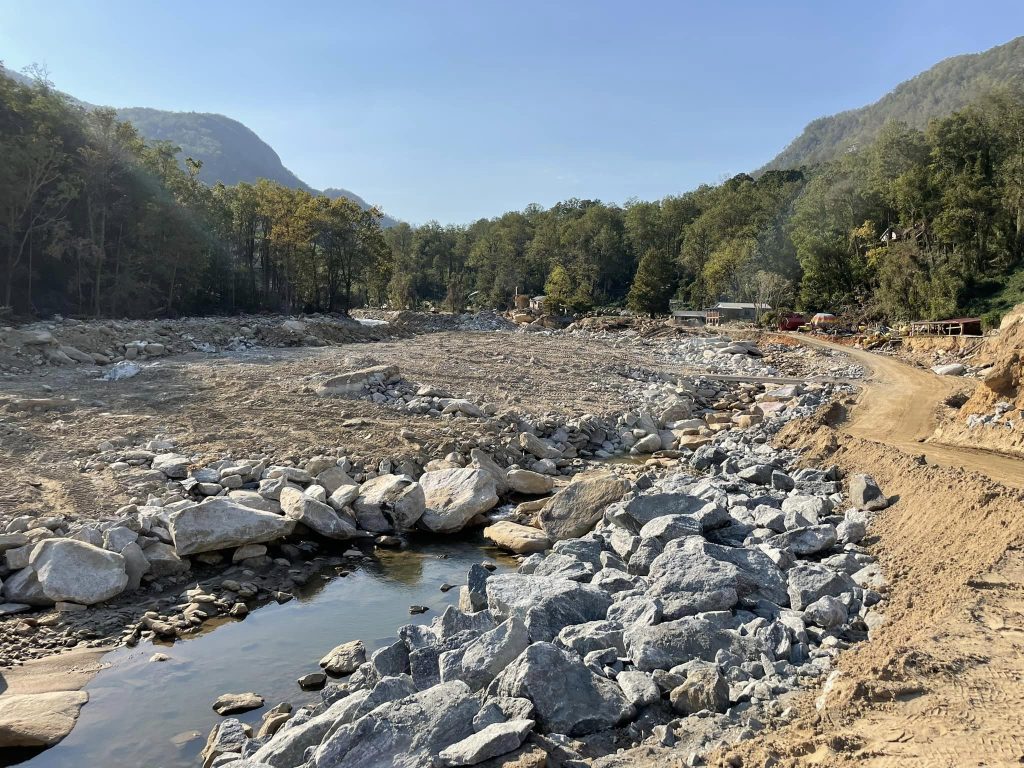
FEMA has also been battling misinformation since Hurricane Helene hit Florida on September 26, before moving north and affecting states like North Carolina. Some social media users have been calling for FEMA to be targeted, further fueling distrust and slowing down recovery efforts.
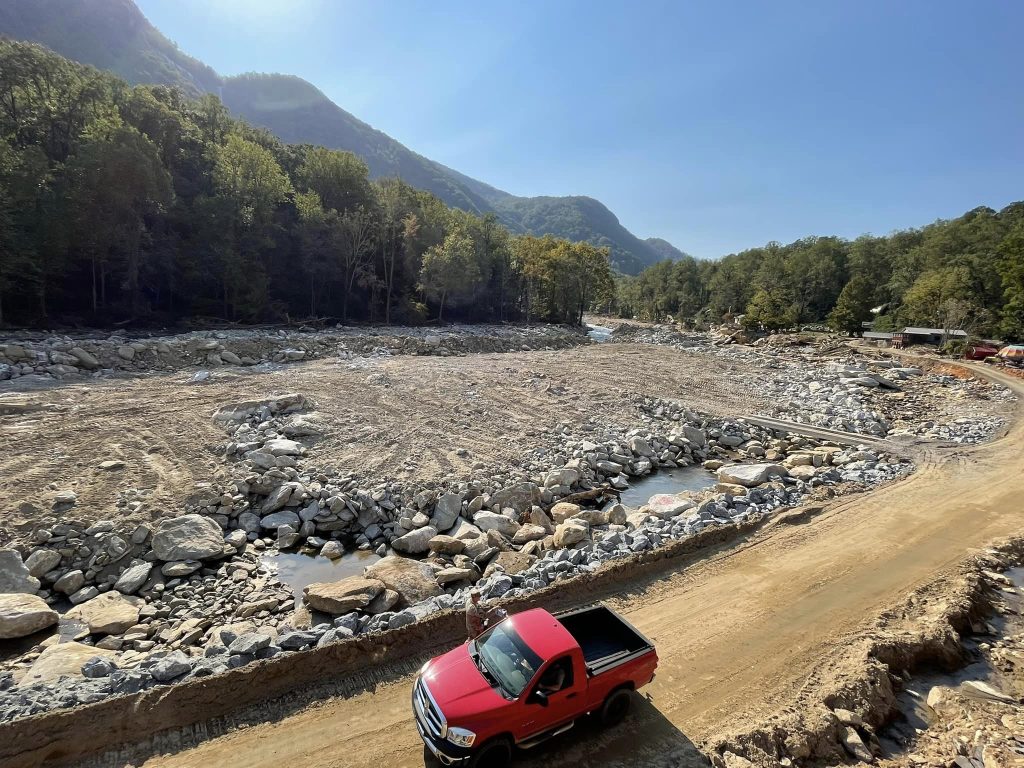
In addition to the rumor about the town being seized, another false claim suggests that federal authorities want to take over Chimney Rock because of a valuable lithium mine nearby. Local officials have strongly denied these rumors, but the damage is done: fear and mistrust have spread through the community, and it’s making it harder for FEMA and other organizations to provide help.

Chimney Rock, which has a rich history of tourism dating back to the late 1800s, is struggling to recover from the destruction. The famous gneiss outcrop that gives the village its name is millions of years old, but in just a few hours, Hurricane Helene’s flooding has almost wiped the town off the map. Businesses on Main Street are filled with mud and debris, and the recovery process has been slow.
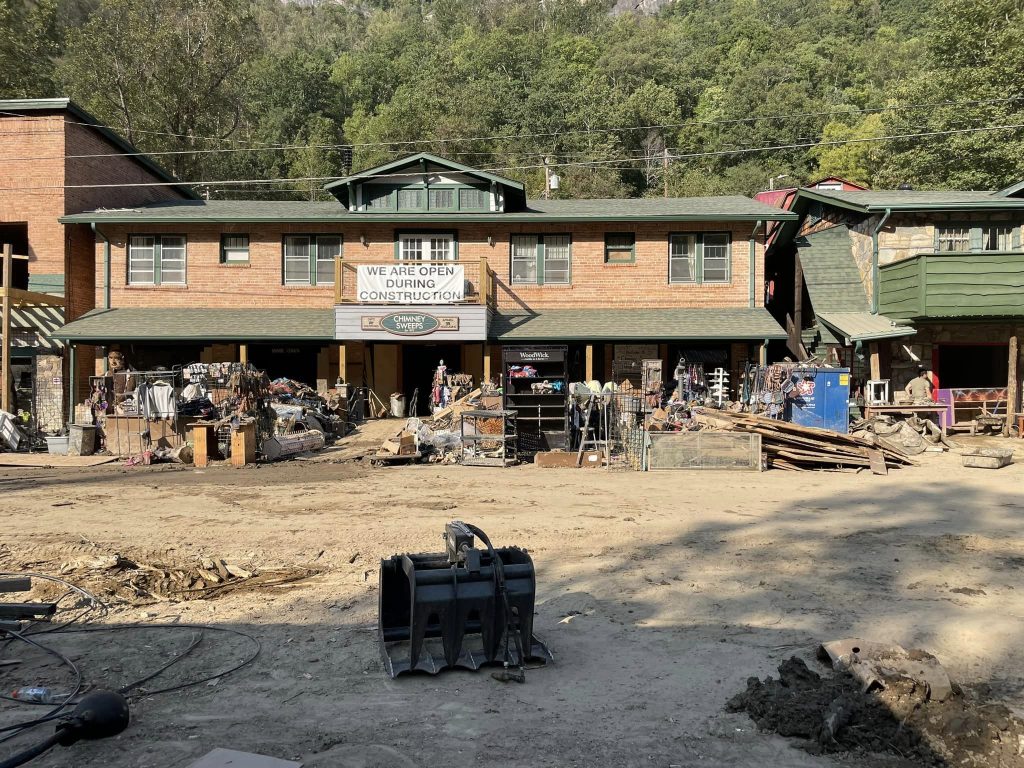
The spread of false information is making an already difficult situation worse. Residents of Chimney Rock need help to rebuild, but now that help is being delayed because of the dangerous actions of a few individuals who believe in these untrue rumors. FEMA and local officials are urging people to rely on trusted sources of information and not social media rumors. In times of crisis, accurate information is critical, and these false claims are only hurting those who need help the most.
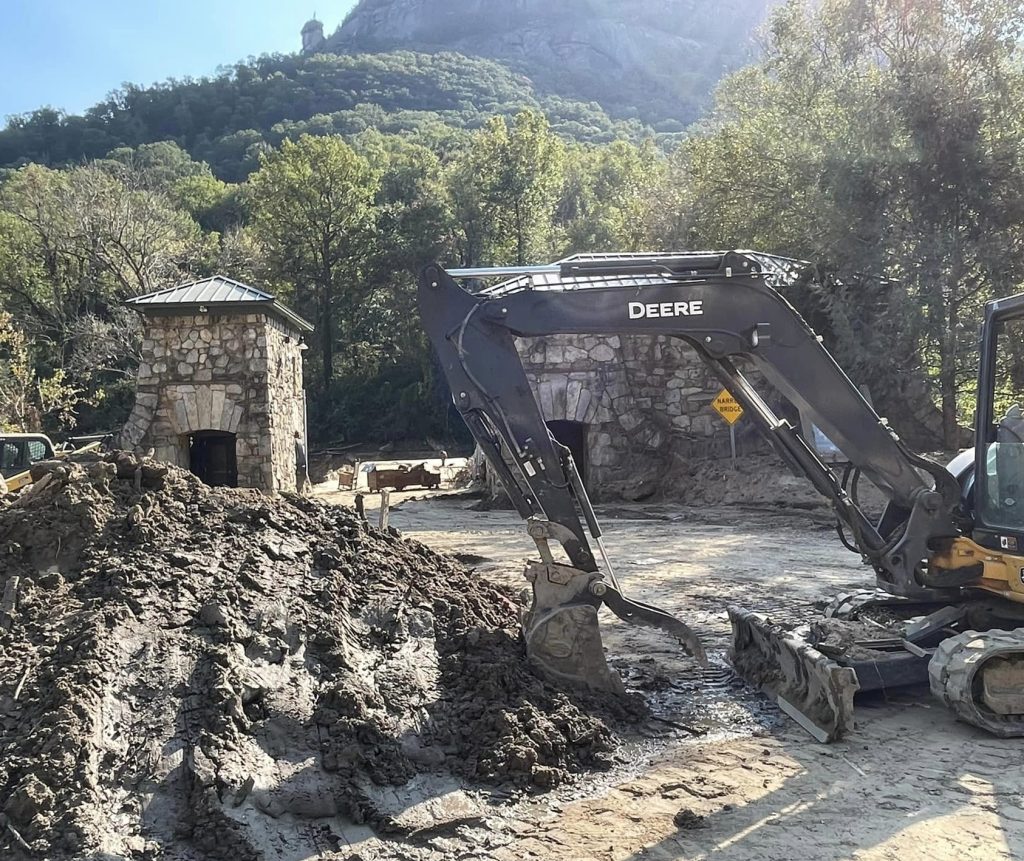
For the people of Chimney Rock, every delay in disaster assistance makes their situation more difficult. As the recovery effort continues, it’s clear that misinformation has become an additional challenge on top of the physical destruction caused by Hurricane Helene.





